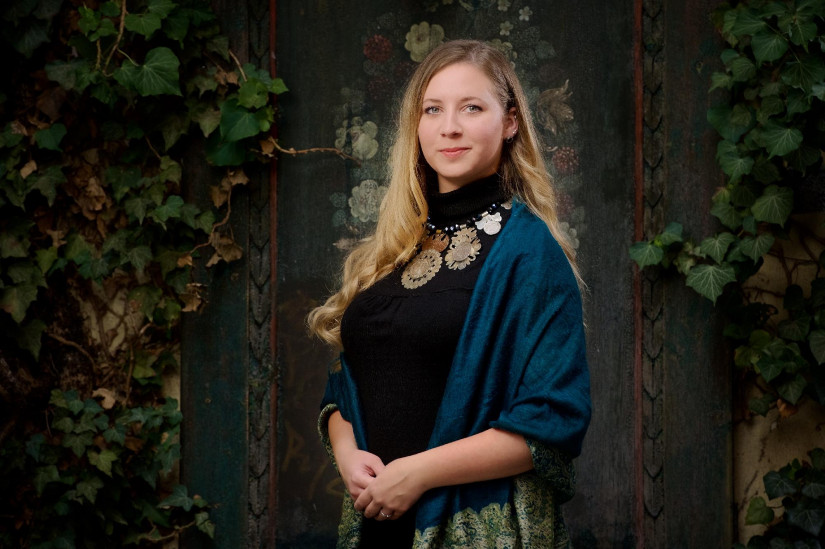
21 December 2018, 19.00-21.00
Solti Hall
Sára Tímár  Presented by Liszt Academy
Presented by Liszt Academy
Reformed Songs with Folk Music
Megváltómnak éneklek/I am singing to my Saviour
Betlehembe siessünk/Let us hurry to Bethlehem
Krisztus Urunknak áldott születésén…/At The Blessed Birth Of Christ Our Lord
Reforduló/Pranniversary – for the anniversary of the Reformation
Új világosság/New light
Fehér virágja/White rose (Luther’s Rose)
Lehullott a Jézus vére/Jesus’s blood has been shed
Krisztus feltámadott/Christ has risen
Pünkösd/Whitsun
Tebenned bíztunk eleitől fogva…/Lord, from all ages you were our salvation
Ó, én Uram/Oh, my Lord
Örök világosság/Eternal light
Sára Tímár (vocals)
Mátyás Bolya (cobza, zither), Dániel Szabó (cimbalom, vocals), Lehel Halászi (recorder), Máté Kalász (violin), Márton Fekete (viola), András Lelkes (cello, double bass), Zsolt Bartha, Mihály Blaskó, Éva Gózon, Johanna Kaszap, Lili Lászay, Johanna Orbán, Julianna Paár, Attila Paládi, Nóra Szabó, László Váray (vocals)
Sára Tímár was brought up in a Christian family, and thus the matters of the Reformed Church – which they attend – have been playing an important part in her life since her childhood. It was in a Reformed congregation in the Kalotaszeg region in Transylvania where she had first participated in a church service in which the conventional hymns and songs of religious worship were sung combined with the typical elements and ornaments of the traditional folk music of the region. This experience made such a deep impression on her that she began studying, comparing and contrasting the homogenous musical material supplied with notation and the musical material which had been subject to the fashioning and re-fashioning of the music by the folk itself. These psalms and hymns would have been sung in old village communities, at home and during work, virtually in any life period. Today, however, churchgoers do not tend to sing the songs of worship outside the religious service. „For me, personally, these tunes are just as valuable as the traditional Hungarian folk music heritage. I eagerly wish that they again become inherent parts of our daily life. I hope that this new sound, which is so deeply rooted in folk tradition will encourage believers to turn their heart-felt prayers into song.”
Presented by
Planétás Ltd., Liszt Academy Concert Centre
Tickets:
HUF 1 900


